Exciting news from Camp K!!!
For the first time in History, Camp K, in partnership with the University of Utah, will be offering Residential (overnight) Camps for children without disabilities ages 9-14 years old! These camps will be called All Inclusive Adventure Camps!
Part of our mission here at Camp K is to support the inclusion of our participants with disabilities into our community. This new program will help us to further achieve our goal. Please help us to spread the word to siblings and friends to come experience the exciting opportunities we have here at camp!
All Inclusive Adventure Camps are a one of a kind summer camp experience designed to opening doors, launching lives and cultivating productive citizens of passion and purpose! This is a five day overnight Residential Camp where campers will get to engage in new adventures and learn new skills. During their stay at Camp K in Emigration Canyon campers will get to experience the outdoors and participate in canoeing, fishing, horseback riding, ropes course/climbing wall and other amazing activities. On a daily basis campers will participate in inclusive activities interacting with individuals with disabilities. Inclusive talent shows with drama, singing, and dancing, themed parties, and other unique experiences will promote self-expression, independence, and practical life skills. Through this inclusive interaction they will also learn about building trust, empathy, compassion and understanding, patience, and other valuable skills for success in today’s world. Our staff are carefully selected role models from all over the world making this a cultural and educational experience!
Not only we will be offering this new overnight program, but our Day Programs as well! Partners include the University of Utah, Natural History Museum of Utah, Red Butte Garden, This is the Place Heritage Park, and Utah’s Hogle Zoo.
Most of Partner Camps provide a 2-in-1 camping experience for children without disabilities. The campers will spend half of each day at our partner’s facilities, learning about many exciting subjects, such as art, science, veterinary medicine, leadership, etc. Then, they will spend the other half of the day at Camp K, where they will participate in outdoor learning activities and nature education, swimming, engaging with horses, traverse our high and low ropes courses, fish, hike, play water games, make s’mores near a campfire, and much more!
One extremely unique Partner Camp is the Ultimate Camp Experience. In this camp, campers are lucky enough to have a 5-in-1 camping experience!
If you can only attend one camp this summer, make it this one! Join us for a week of signature camp activities where each day finds campers at a different location with new exciting experiences. While at Camp Kostopulos students will participate in swimming, fishing, climbing wall activities, and experience an introduction to horses and learning about their care. At Red Butte Garden, campers will have a plethora of garden adventures while exploring everything from plants to insects. While at This Is The Place, we’ll discover Utah’s pioneering history through train rides, panning for gold and other hands-on activities. Campers will also spend a day exploring Utah’s Hogle Zoo, watching animal demos while learning about the animals that call the Zoo home. And, at the Natural History Museum of Utah, explore the Museum and our collections while participating in hands-on science. One week has never been so exciting!
Camp K is grateful to our Partners for helping us provide these amazing experiences for our campers.
Through these opportunities at Camp K, everyone has fun, feels included, and just get to be kids!
Learn more about specifics, and register for our Partner Camps visit: www.campk.org/partner-camps
Please click the image below to view the news story aired on ABC4Utah:
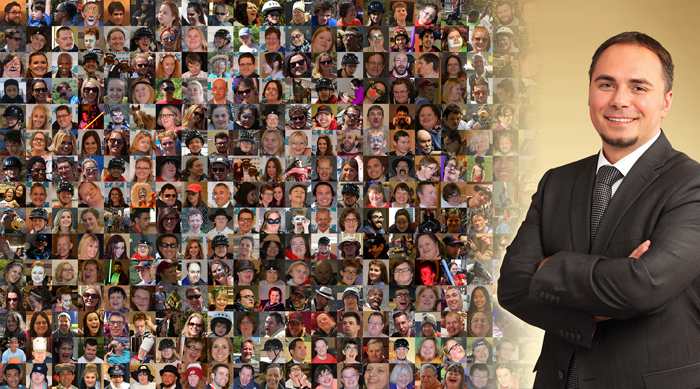
After living half my life in Europe and half my life in the U.S., and traveling the world, I find that the same divisive issues we are facing here at home are very similar issues that are dividing people all around the world. We are entering uncharted territory. The world is becoming very small, and the future is unclear and uncertain. We live now in what scholars have called a “condition of globality.” Careers, family life, community activities, and even mental health all depend, to some degree, on our understanding of the astonishing complexities that intertwine all human beings. The ability to “think the world”—its economy, science, technology, politics, and culture—must be a primary aim of all education today.
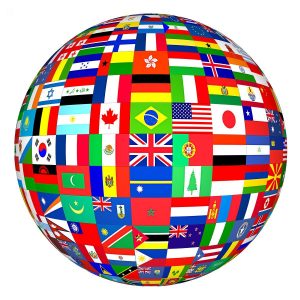 Now, more than ever, we should teach our children what diversity and inclusion mean, as we will come together more and more, and as borders will be torn down, diversity and inclusion will be the only constant that the future will hold. What does the future look like in a global, diverse and inclusive world? What should our common values be? These are the questions we need to ask ourselves. We should teach the values of sharing and accepting ideas, cultures, and people. We should learn from our mistakes in history, and never repeat those again, when it comes to misunderstanding, conflict, and war. The world needs the next generation to be more tolerant of each other’s views, ideology, and beliefs.
Now, more than ever, we should teach our children what diversity and inclusion mean, as we will come together more and more, and as borders will be torn down, diversity and inclusion will be the only constant that the future will hold. What does the future look like in a global, diverse and inclusive world? What should our common values be? These are the questions we need to ask ourselves. We should teach the values of sharing and accepting ideas, cultures, and people. We should learn from our mistakes in history, and never repeat those again, when it comes to misunderstanding, conflict, and war. The world needs the next generation to be more tolerant of each other’s views, ideology, and beliefs.
In my humble opinion, I have had an opportunity to interact with and understand different cultures, societies, political, and organizational systems. I was born and raised in a small city, have traveled around the world, have lived half my life on one continent and half on another, have worked with people of all ages, both men and women, with different ethnicities, coming from different backgrounds, different abilities, different disabilities, education and religion. I found out that people are people – it doesn’t matter where you go around the world, we are all the same and want the same things: a better life and a better and fair world with fair opportunities for all, where we can all use our own unique talents to make a contribution to our society.
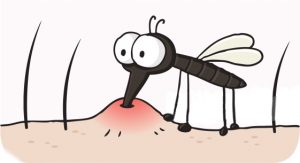 In order to change the world, we need to start with making a difference in our own communities, in our own circles, and in our own neighborhoods. We will then hope that our work will be noticed by others, and become an example of change for good. If you think you are too small to make a difference in the world remember what Dalai Lama said, “If you think you are too small to make a difference, try sleeping with a mosquito in the room.”
In order to change the world, we need to start with making a difference in our own communities, in our own circles, and in our own neighborhoods. We will then hope that our work will be noticed by others, and become an example of change for good. If you think you are too small to make a difference in the world remember what Dalai Lama said, “If you think you are too small to make a difference, try sleeping with a mosquito in the room.”
It is ultimately up to us how this era will shape up; it is up to us to make the world a better place for all. We are the architects of our own lives and the world.
I think we will ultimately discover more Abundance, Love, Happiness, and Joy, Knowledge and Wisdom, Fulfillment, Acceptance, Understanding, Kindness, in a world where we are all just citizens – World Citizens. If we live in a world without borders, where we are all aware of our global challenges, resources, talents, opportunities, where we all have the humility of knowing that no human is better than another, regardless of where they were born, we will all be World Citizens. I believe that, somewhere in the future, our world will remember our history to say there once were many different countries, where people had many different citizenships, but will be celebrating the present that will brings us all together in safety, prosperity and equality, where everyone regardless of their geographical location, or ability level they will have the opportunity to be Global Citizens, just one citizenship for all people around the world and use their individual talents to continually make the world a better place for all.
I believe the world under the globalization’s three waves of free transfer of goods, ideas, and people has changed. The world has changed incrementally, to the point that each country is seen by its citizens more like a corporation. I believe, in our global world, where people are attracted by the best companies, to the detriment of the mediocre companies, countries are seen in the same light. Better run countries attract more people, to the detriment of those countries that are not run as well. I believe that immigration, ultimately, tells a very simple story. Countries that lose people during these waves of globalization encounter bad leadership, and countries which attracted immigration had good leadership. Ultimately people are punishing their politicians and bad leadership. If globalization and the free transfer of people happen openly, there might be countries left without people, and hopefully, then their politicians and leaders would finally understand the gravity of their actions.
We live in an ever-changing world; globalization and technology change our lives every day. Now more than ever we need to acquire a unique set of skills in order to understand the challenges and problems that we are dealing with on a daily basis. We need to be able to learn from one another, to be open to one another, to accept one another for which we are as human beings first and foremost, instead of where we are from, what language we speak, what talent and abilities we have.
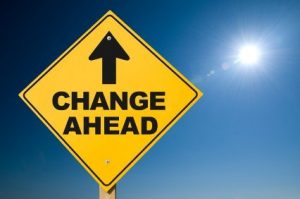 The number one enemy of CHANGE is FEAR. We live in a world where we either drive disruption, or we are changed by it. We tend to FEAR what we don’t know, so we should place ourselves in situations where we constantly push ourselves out of our comfort zone in order to overcome fear. Our comfort zones keep us safe. Outside of our comfort zones, we become vulnerable, and in our vulnerability, the most amazing self-discoveries and amazing accomplishments happen. Only after you step outside of your comfort zone do you begin to change, grow, and transform.
The number one enemy of CHANGE is FEAR. We live in a world where we either drive disruption, or we are changed by it. We tend to FEAR what we don’t know, so we should place ourselves in situations where we constantly push ourselves out of our comfort zone in order to overcome fear. Our comfort zones keep us safe. Outside of our comfort zones, we become vulnerable, and in our vulnerability, the most amazing self-discoveries and amazing accomplishments happen. Only after you step outside of your comfort zone do you begin to change, grow, and transform.
Our generation loves bragging about being single, cutting people off, and not trusting anyone, like that’s an accomplishment. We are stuck in a generation where loyalty is just a tattoo, love is just a quote, and lying is the new truth. We need, more than ever, creative ideas for human development, for education, for teaching and learning values for the sake of our humankind, so we can continue growing in acceptance of one another. We need to be able to teach children how to think, create, and collaborate in teams – diverse teams composed of people of different backgrounds, races and cultures. We can’t predict anymore what college success will look like 10 years from now – the world and our environment are changing so fast, all we can do is give the children the skills they will need in order to succeed.
Mircea Divricean
President & CEO
Kostopulos Dream Foundation

If we are to Reflect on the Past, and Think about the Future, let’s focus on some of the trends of our current times. The human population has reached 7.4 billion, and it is estimated to increase to 11.2 billion by 2100. The environmental effects of human actions have accumulated drastically during this era. For the first time, human-generated environmental change threatens the future of our species, if not the entire planet. The ability of humans to extract more energy and resources from a given area of the earth has decisively increased. Politically, the world has been affected by great political turbulence and wars in which the risk of nuclear confrontation has been present. The global economy has grown faster than ever before in history. More economic growth has occurred in this era than in all previous eras of human history combined. Yet, the ability of economic globalization to deliver better lives for all has been deeply compromised by its contradictions, especially boom and bust cycles and wider social inequality. New technologies of transportation and communication have made it possible not only to link all parts of the world in real time, but also to connect individuals more intimately and inexpensively. Thanks to the new technologies of this era, governments and corporations have acquired unprecedented capacities to intervene in the lives of citizens, the better to observe, document, control, and organize multiple aspects of life. The continued escalation in the costs of military technology and its increasing development has made warfare vastly expensive for all states. Simultaneously, the costs of basic administrative, educational, and welfare services to unprecedented numbers of people have driven many states in the less developed world to the brink of collapse. In the gap between the capacity of states to organize and the growing global instability have come all sorts of terror groups. The race between order and disorder can be observed widely around the world.
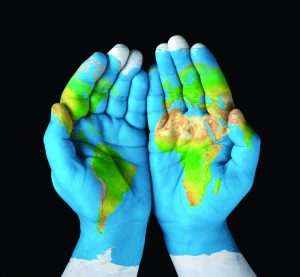 The world has become increasingly contradictory and paradoxical. For some, rapid economic growth and globalization have offered opportunities. For others they have meant the destruction of cherished lifeways and ancient traditions. While many people got wealthier, many more experienced declining standards of living, nutrition, and health. The varied and often contradictory impact of change explains why Era Nine has been an era of constant military, political, and cultural conflict.
The world has become increasingly contradictory and paradoxical. For some, rapid economic growth and globalization have offered opportunities. For others they have meant the destruction of cherished lifeways and ancient traditions. While many people got wealthier, many more experienced declining standards of living, nutrition, and health. The varied and often contradictory impact of change explains why Era Nine has been an era of constant military, political, and cultural conflict.
If you travel the world, you will find these trends to be true. If you go to Hawaii, you will find that the locals feel they are the minority now, and all their cherished culture is being lost. Many other parts of the world deal with similar problems. In Australia and New Zealand, the housing market is becoming increasingly out of reach for the locals, due to the foreign direct investments. This is true to many other parts of the world. There are many imbalances being built left and right. Inequality is a topic that scholars have discussed for many years now, and warned that something will have to give and change. Unfortunately, the trend has not skipped a beat.
One other important event of our times occurred 25 years ago in Europe: The Fall of the Berlin Wall. We still deal with its aftermath. I will reference my personal perspective on the change in Central-Eastern Europe in 1989, from socialism to capitalism. There is a huge difference between the two systems. One of my friends, a world renowned economist, put it metaphorically: the difference between socialism and capitalism is similar to the difference between a Zoo and a Jungle. He associates socialism with a Zoo, because socialism is concerned with redistributing resources from the rich to the poor to ensure everyone has both equal opportunities and equal outcomes – there are nice, tall, safe walls to protect everyone. Everyone has a house, food, education, jobs, and doctors. However, capitalism is like a Jungle. Capitalism is unconcerned with equality. It is argued that inequality is essential to encourage innovation and economic development. In capitalism, only the best, most driven, most powerful survive. The vicious instincts of survival lead our economies, creating an unforgiving economic environment. Well, a wild animal was born in, or that has lived for many years or a lifetime, in a Zoo, has a very low survival rate if taken back to the wild. In 1989, when our world realities tore down the socialistic systems in Central-Eastern Europe, nobody warned the millions of people living behind the walls of socialism that capitalism is coming, and that it is very different. No one helped them get educated and trained ahead of time, to survive and succeed in the new system. They simply tore down the walls. When the wall came down, the capitalistic instincts entered that part of the world. Well-trained, capitalistic driven businessman, unfortunately, left behind a generation that suffered the consequences of a very sudden change. I believe the next generations should learn that abrupt changes in any political and economic systems require lots of preparation, so that we instill the least amount of damage to people that are being affected by that change. However, I believe that now, 25 years since the change in the political and economic system in Central-Eastern Europe, people finally understand capitalism. They are ready to embrace its values, and create their own future, and not rely on a future that was promised to them 25 years ago.
I hope that we learn from our own mistakes in history as a society, and continually make the world a better and fair place for all. I believe we have come very long way as humans. We now need to learn from each other, share values, and teach the skills and values that we need in today’s world in order to succeed.
As globalization happens, I believe we should listen to each other’s views, values, cultures, and ideas. We should share those freely, and not try to force our own ideas, views, values upon people. I believe we need to find value in both sides, and understand each other. We must not rule out other people’s views before even having an opportunity to hear them out. I believe we can make friends, and not enemies, by listening to and sharing those values and views. I believe that people can forget what we say, people sometimes forget what we do, but people will never forget how we make them feel. That’s how we should build relationships and friendships, by making people feel valued, respected and supported.
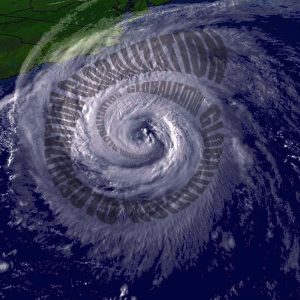
We live in a very complicated world; the acceleration of globalization has changed everything. First we had the free movement of goods, then ideas, and now the free exchange of people; however the momentum may stop at the free exchange of people. Bill Clinton once called globalization “the economic equivalent of a force of nature, like wind or water”. Globalization is powerful, but can be inconstant or even destructive. Moving goods became cheap over time; however until the very end of the 20th century, moving ideas was expensive. Before the invention of the internet, an international call was $5 per minute, or in many cases, more. Since the 1990s, globalization has changed radically, as the internet has lifted the cost of moving ideas, and fueled the second wave of globalization.
Technology has changed everything around us and is constantly changing everything. One thing is certain, not even the future is what it used to be. In January, I travelled the world to find talented people who can join our team this summer to provide amazing services to our campers and students at Camp K. We live in a very diverse and interconnected world, people have moved around in the world, in search for new opportunities, new dreams, a better life, new adventures, love, new beginnings. Others have moved around for education opportunities, work, or simply out of curiosity. We live in a global world. In all the cities I travelled to, London, Melbourne, Sydney, New York, Los Angeles, Auckland, Washington D.C., Edinburgh, Warsaw, Manchester, Amsterdam, Krakow, Bucharest, San Francisco and others, I found a very diverse population, from all corners of the world, speaking all sort of languages, representing all different cultures. In my opinion it will be impossible to stop globalization’s third wave, the free movement of people.
We need to learn how to live, work, and play in the new, diverse, and inclusive world. We need to teach values that inspire, respect and support all across the board, as our neighbors, co-workers, and friends will be of diverse backgrounds. It is going to be very hard if not impossible to reverse globalization. Recently we have heard stories of immigrants being deported, after many years living in our country. After they go home, they find that their country has changed dramatically, and the lives they once cherished and enjoyed are no longer there. They became strangers in what used to be their lives. They took a leap of faith, dedicated to this country, worked to build a new life, embraced our values, and now when they are forced to go back the lives they left behind, but are no longer there for them. It is another tragedy of our times.
The curse of an immigrant is that somehow they belong to two worlds. They left behind a life they cherished and now they live a new life in a new world. They embrace the values of the new world, however, somehow they always keep those cherished memories with them from the former life they lived in the other country. I think that is because we tend to forget bad memories and only keep good memories, so we can’t remember all the hardships, but only the happy times. Some go back to their birth countries often, some go once every so often, and some never do. Each time they go, they realize they are now just a tourist, a visitor. The more time goes by, the more the life they left behind is no longer there. If ones think that, after living for so long in a different country, it is easy to return to the old country, they are wrong. Many immigrants in today’s world deal with this paradigm. I find stories everywhere I go. In Auckland, New Zealand I met a guy who left London a decade ago, married and had a child in New Zealand with a local citizen. During this time, he didn’t go home much, however now he was melancholic towards going back home, and is thinking he will move back. I think he will find a different London today than what he left behind a decade ago. Recently, I read about a story of an immigrant from India, a high-level executive engineer, working at Google in San Francisco for over a decade now. She had an amazing job, in her own words, she “got to travel all over the world, attended conferences, it was great; the team was great; it was a really good job”. However, in our current fast-paced, busy society, she felt lonely. She was part of all kinds of social clubs, and attended many parties; however she still felt lonely, and decided to move back to India, because she was becoming sadder and sadder. She felt exhausted from living in San Francisco. It is a paradox of our society; we keep ourselves extremely busy so we don’t have time to face our realities, and emotions. She left U.S. for India, for “less pay, but more … everything”, in her own words. Her advice for U.S immigrants is “don’t torture yourself” but “to trust your gut”. It will tell you if the U.S. is your true home, or if “it’s not your destiny”. Again, I believe these feelings are felt all over the world as globalization accelerates.
Recently I read an article that was based on a recent poll that concluded that we need to add one more thing to the list of things dividing left and right in our country: that we can’t agree what it means to be an American. A new survey found that Republicans are far more likely to cite a culture grounded in Christian beliefs and the traditions of early European immigrants as essential to U.S. identity. Democrats are more apt to point to our country’s history of mixing of people from around the globe, and a tradition of offering refuge to the persecuted. Patrick Miller, a political science professor at the University of Kansas who studies partisanship and polling, said the results reflect long-standing differences in the U.S. between one camp’s desire for openness and diversity, and another’s vision of the country grounded in the white, English-speaking, Protestant traditions of its early settlers.
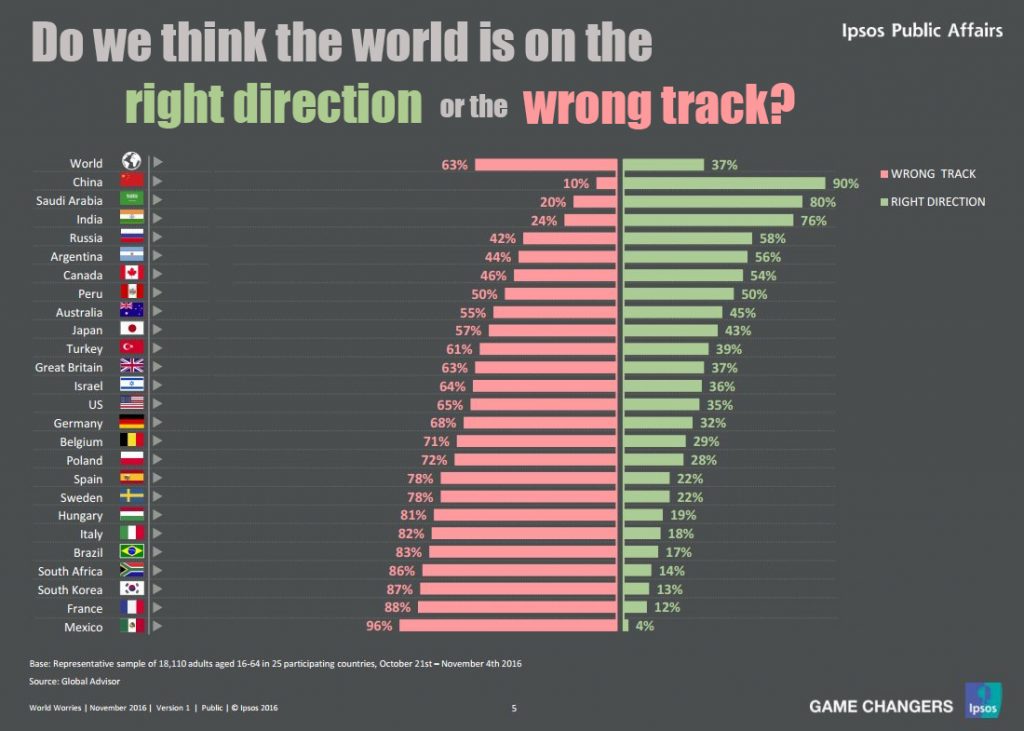
The latest study to assess happiness found that U.S. has dropped one more spot in the rankings around the world. We are now number 14, with Norway taking first place. As a matter of fact, 4 out of the first 5 countries are Northern European countries. The study, which measures social factors alongside economic data, points to the limitations of financial factors in achieving happiness. “This report gives evidence that happiness is a result of creating strong social foundations. It’s time to build social trust and healthy lives, not guns or walls. Let’s hold our leaders to this fact,” said Jeffrey Sachs, director of the Sustainable Development Solutions Network, which produced the report in association with United Nations.
“The predominant political discourse in the United States is aimed at raising economic growth, with the goal of restoring the ‘American dream’ and the happiness that is supposed to accompany it. But the data show conclusively that this is the wrong approach,” said Sachs, in a section of the report entitled “Restoring American Happiness”. “The United States can and should raise happiness by addressing America’s multi-faceted social crisis— rising inequality, corruption, isolation, and distrust—rather than focusing exclusively or even mainly on economic growth, especially since the concrete proposals along these lines would exacerbate rather than ameliorate the deepening social crisis.”
Mircea Divricean
President & CEO
Kostopulos Dream Foundation
 March was a huge success for Camp K activities! We finished up our international cuisine program with food from America, China, India, and Hawaii! The participants enjoyed experiencing different cultures and eating delicious food! We went on many adventures out in the community including the Natural History Museum of Utah where they got to see the dinosaur exhibits, the Jazz game where they got to be on the court at halftime and high five the players, the planetarium to learn about space exploration, and the Murray Firestation where they met firefighters and took a tour of the facilities!
March was a huge success for Camp K activities! We finished up our international cuisine program with food from America, China, India, and Hawaii! The participants enjoyed experiencing different cultures and eating delicious food! We went on many adventures out in the community including the Natural History Museum of Utah where they got to see the dinosaur exhibits, the Jazz game where they got to be on the court at halftime and high five the players, the planetarium to learn about space exploration, and the Murray Firestation where they met firefighters and took a tour of the facilities!
The highlight of the month was the St. Patrick’s Day Party! The participants ate snacks, went on a scavenger hunt, and were serenaded by a bagpiper! The night finished off with a live performance of professional Irish dancers, followed by our very own dance lesson! We will finish off our Community-Based season in April with some exciting things! We are planning on enjoying the spring weather with a trip to the zoo, and a bonfire night! We are also gearing up for a special night at our Enchanted Forest Prom! April will end with our annual End of Season Barbeque where we will say goodbye until next season!
As spring passes us by, we are in full swing with summer camp preparations! We are preparing our cabins for over 50 counselors and support staff to join us from all over the world! Campsites have been booked for all of our Travel Trips, and new activities are in the works for Residential and Day Camp! Registrations continue to come in every day and weeks are filling up! We are so excited to have the best summer ever!
Videos of the events:

Are we better together, or are we better alone? A look at the Old World Map shows one supercontinent, Pangea. A look at the New World Map shows the one supercontinent broken into several continents. The continental drift began about 175 million years ago. Although continents are still separated in our current times, people are coming together, faster than any other times in human history, forming a new world, a diverse and inclusive world. Of course, this is possible due to all current technological advances in every industry such as transportation and communication. Although many questions have been answered through the knowledge we accumulated over time as humans, many questions still await answers. I believe the more we come together, the more we build a safer and better world for all, built on mutual understanding, compassion, and respect. Coming together will help us learn from each other, grow in acceptance, and find common values. 
We are living at the dawn of a New Era, we are all feeling it and know it, there are big changes happening all around us. We haven’t named it yet, as we are still deciding what kind of an Era this will be, how long or how short it will be, and most importantly, how will this time in history be remembered. Will this Era be the first in Humankind History, without global wars and conflict? Will this Era be the first to be remembered as the Era of Acceptance, Understanding, Selflessness, Honesty, Kindness and Collaboration? We live in amazing times. We live at the border between the past and the future of humankind. This is OUR TIME, and we have the power to shape how we will be remembered by the next generations. We need to ask ourselves how we want our children and the children of our children to remember us.
According to The World History for Us All, a project of the National Center for History in the Schools at UCLA in cooperation with San Diego State University, there are nine Big Eras that address history on the scale of humankind. They are not limited to a particular region or civilization. Each Big Era deals with a chronological period on the global scale. Each successive period is shorter than the previous one. First Era considers the very long epoch of history up to the emergence of Homo sapiens, and spans from 13 Billion to 200,000 years ago and it’s named “Humans in the Universe”. Second Era, named “Human Beings almost Everywhere”, spans from 200,000 to 10,000 years ago. Third Era, named “Farming and the Emergence of Complex Societies” spans from 10,000 to 1,000 Before the Common Era. Fourth Era, named “Expanding Networks of Exchange and Encounter” spans from the year 1,200 Before the Common Era to year 500 Common Era. Fifth Era, named “Patterns of Interregional Unity” spans from the year 300 to 1,500 Common Era. Sixth Era, named “The Great Global Convergence” spans from the year 1,400 to 1,800 Common Era. Seventh Era, named “Industrialization and its consequences” spans from 1750 to 1914 Common Era. Eighth Era, named “A Half Century of Crisis” spans from 1900 to 1950 Common Era and Ninth Era, is concerned with second half of the twentieth century and the dawn of the twenty-first, from 1945 to present and it’s named “Paradoxes of Global Acceleration”. Study of all nine eras is designed for exploring the past on several scales of time, space, and subject matter.
The world has changed continually ever since the beginning, however recently the speed of the change has increased exponentially. Innovation rates are now increasingly more rapidly than ever before. The only constant in the world today is CHANGE. We are now bombarded every day with information, and sometimes it is very hard for our brains to digest fast enough the information we receive. We live in an era of technological leaps that roll out at the speed of light, in every industry. I think, to some degree, technology is developing far faster than we are developing as human beings and that leaves us with a sense that, somehow, we are left behind, at times. The more we feel left behind, the more we feel overwhelmed, depressed, unhappy, and insecure about the future. Although technology is supposed to make our lives better, technology can also make our lives feel emptier.
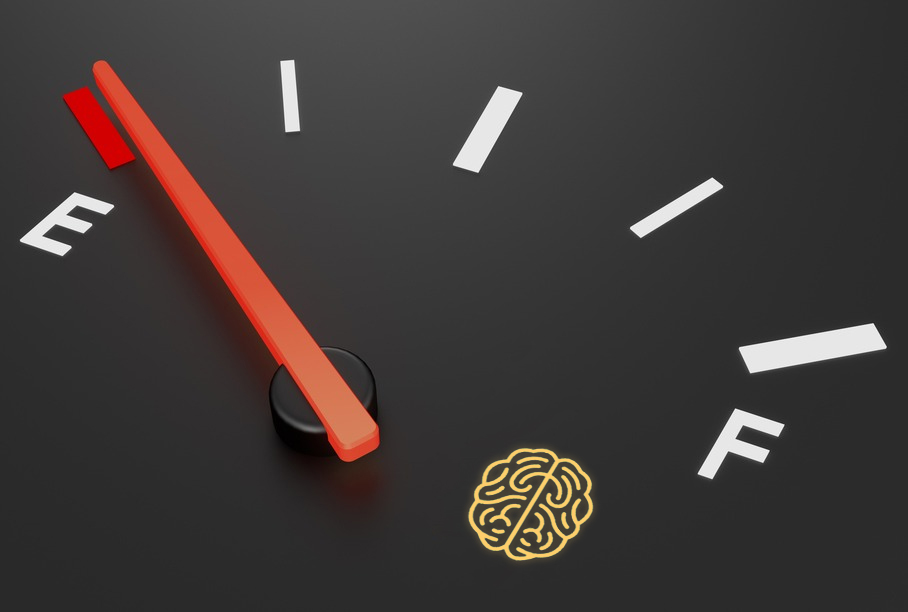
We are human beings, and today’s world feels like a quest for extraordinary. And if extraordinary is not achieved, that leaves us with an empty feeling. Somehow an ordinary life became synonymous with a meaningless life. We somehow forgot that the ordinary moments in our lives are the ones that make us most happy, bring us most joy. Furthermore, knowledge and technology helped answer many questions so far, however there are many questions we still don’t have answers to. In the past, we used faith to believe in something we didn’t understand. Faith gave us comfort. Faith also makes us vulnerable, so if we abandon faith because we want certainty, we abandon vulnerability. Faith without vulnerability leaves us with extremism.
We live in a very complex world; we live very fast paced lives. We are not allowing ourselves to be vulnerable in the current environment we created, and with that we are not allowing ourselves to feel happiness or joy, as we fear those feelings will go by too quickly, and something bad will happen next. It is almost like we feel guilty for feeling happiness or joy. We live in an unforgiving world, and we are not allowing ourselves to feel any emotions. Instead, we are numbing our vulnerability. We are the most addicted, medicated, obese, and indebted adult cohort in human history. Adults are in crisis, and so are our children – Mental Health Crisis, Physical Health Crisis, Addiction Crisis, Behavior Crisis, Character Crisis, Stress & Insomnia, Self-Harm & Suicide, and the list can go on. We need to find new ways to educate the next generation about life and values so they can be successful in the extremely challenging times we live in today. What kinds of skills will we need in today’s world in order to live successful lives?
Mircea Divricean
President & CEO
Kostopulos Dream Foundation
 February was exciting for Camp K students, as they embarked on some exciting adventures out in the community! The month started off with a bang at a Magic Show, held at the Utah Children’s Theatre, where we saw amazing magic tricks, thrilling stunts, and hilarious jokes performed by magician Elias “Lefty” Caress. Things heated up as we cheered on some of our favorite sports teams throughout the month, including the University of Utah Gymnastics, and the Grizzlies Hockey. It wouldn’t be Camp K without a party -and this month did not disappoint! We celebrated with a Valentine’s Day Party, complete with cookie decorating, card making, and of course, a dance party! The highlight of the month was our Star Wars themed Mini-Camp! It was a weekend full of Storm Troopers, lightsabers, and Jedi’s. We even had an appearance by Kids Heroes Foundation, which included a Jedi master, Sith Lord, and a Tie-Fighter pilot!
February was exciting for Camp K students, as they embarked on some exciting adventures out in the community! The month started off with a bang at a Magic Show, held at the Utah Children’s Theatre, where we saw amazing magic tricks, thrilling stunts, and hilarious jokes performed by magician Elias “Lefty” Caress. Things heated up as we cheered on some of our favorite sports teams throughout the month, including the University of Utah Gymnastics, and the Grizzlies Hockey. It wouldn’t be Camp K without a party -and this month did not disappoint! We celebrated with a Valentine’s Day Party, complete with cookie decorating, card making, and of course, a dance party! The highlight of the month was our Star Wars themed Mini-Camp! It was a weekend full of Storm Troopers, lightsabers, and Jedi’s. We even had an appearance by Kids Heroes Foundation, which included a Jedi master, Sith Lord, and a Tie-Fighter pilot!
We couldn’t be more thrilled with the way our specialty program, International Cuisine, has been going! During February, we explored and learned about different cultures and food from around the world. We “traveled” to Italy, Mexico, Greece, and the USA! Because of our generous donors, we were able to try delicious food from each of these locations. A special thanks to The Old Spaghetti Factory, Sugar House BBQ, La Puente, International Pantry, Spitz, and Ruth’s Diner. We look forward to “traveling” to China, India, and Hawaii in March!
With two months left in this season’s Community Based Program, we are gearing up for some exciting things in March, including a visit to the Natural History Museum of Utah, Disney on Ice, a tour of the Murray Fire Station, and our annual St. Patrick’s Day Party.
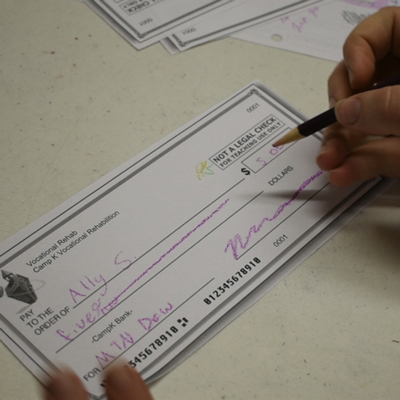 Our students have been working hard in our Vocational Rehabilitation program. We are having a great time learning about public transportation, communication, and professional development. In March, we will be diving into finance and learning about saving, spending, and budgeting. Don’t let these boring words fool you – our lessons, games, and activities are not only educational, but fun as well!
Our students have been working hard in our Vocational Rehabilitation program. We are having a great time learning about public transportation, communication, and professional development. In March, we will be diving into finance and learning about saving, spending, and budgeting. Don’t let these boring words fool you – our lessons, games, and activities are not only educational, but fun as well!
The volunteers at Camp K continue to influence and inspire our programs to be the best they can. We had over 50 hours of service time volunteered at our various programs in February. Some notable volunteers this last month were Bill and Saundie Stone, who dedicated many hours prepping our monthly flyers, assembling file cabinets, and addressing letters for our upcoming Gala.
More fun and events are coming soon!
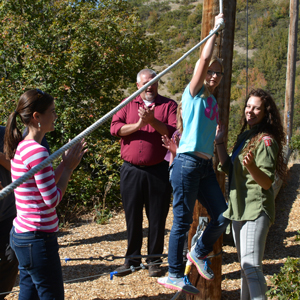 This year, we will celebrate our 50th Anniversary with the best summer yet! We have added some new and exciting activities to the schedule this year, and we can’t wait for you to join us! We will kick off the summer with our annual Family Fun Day, on June 3rd. We want everyone to experience the Magic of Camp K! All of our activities will be open, including horseback riding/interaction, ropes course, swimming, fishing, field games, BBQ lunch, and more! This event is free for families with kids who have disabilities.
This year, we will celebrate our 50th Anniversary with the best summer yet! We have added some new and exciting activities to the schedule this year, and we can’t wait for you to join us! We will kick off the summer with our annual Family Fun Day, on June 3rd. We want everyone to experience the Magic of Camp K! All of our activities will be open, including horseback riding/interaction, ropes course, swimming, fishing, field games, BBQ lunch, and more! This event is free for families with kids who have disabilities.
Summer Camp officially begins on May 29th, and runs through August 4th. We have weeks available for all ages, from 7-99!
Residential and Day Campers will enjoy a new, giant outdoor pavilion, where we can eat our meals altogether out in the fresh air! They will also enjoy the traditional Camp K activities, including horseback riding, swimming, fishing, canoeing, ropes course, campfires, and much more. They will also enjoy some exciting new activities, including new games and group sing-a-longs.
Trip Campers includes a new trip to St. George, where they will explore the red rocks and visit Tuacahn Center for the Arts. We will also continue the campers favorite trips to Park City, Zion, Yellowstone, Bear Lake, and Jackson Hole. Trip campers will stay in campsites, where we will enjoy the great outdoors through hikes, exploring the parks, and cooking meals around the campfire.
 For those who love horses, we will have 3 weeks of Horse Camp – where the campers will get to spend extra time with their favorite animals every day, in addition to experiencing the other activities at Camp K.!
For those who love horses, we will have 3 weeks of Horse Camp – where the campers will get to spend extra time with their favorite animals every day, in addition to experiencing the other activities at Camp K.!
Partner camp has some exciting things in the works, including camps focused on 21st Century Skills, science, art, and some collaboration with Microsoft and the University of Utah! We are also continuing our Partner Camps with great organizations, such as the Natural History Museum of Utah, Bad Dog Arts, Red Butte Gardens, Tracy Aviary, This is the Place, and Hogle Zoo.
All campers will have the pleasure of meeting our counselors and staff from all over the world – including the United States, Australia, New Zealand, Scotland, England, and Poland!! We are also excited to welcome some part-time junior counselors and staff as part of our Summer Work Exploration Experience and Training Program (SWEET) during Summer Camp. These students/staff completed our Vocational Rehabilitation Program.
If you have not yet signed up for summer camp, we still have spots available – so send in your registrations today! More information is available at:
The magic continues with Disney on Ice! Our students had a blast following the adventures of Toy Story, Cars, The Little Mermaid, and Frozen. We fired up the stands as we joined the cast in singing theme songs from Frozen. Thank you to all the amazingly talented performers for sharing your gifts, and to the Vivint Smart Home Arena for the spectacular stadium with a fantastic view!
Last week, our students traveled to the far-away land of China, where they were introduced to tasty wok-fired Asian cuisine! They worked on their fine motor skills by learning how to use chop sticks to sample dishes such as the signature orange chicken, broccoli beef, fried rice, and chow mein! They finished off the evening by talking about Chinese New Year, and breaking apart a traditional Chinese fortune cookie! Thanks to the Rice Garden for donating the delicious meal!
Last Friday, our students ventured to a community favorite – the Clark Planetarium! They enjoyed an amazing 3D movie, where they learned about the world’s Incredible Predators through the eyes of a cheetah and her hungry cubs! After the movie, they explored science through several hands-on exhibits about the solar system and the international space station! We got to defend the Earth from killer asteroids, and even walked away with a few fun mementos. Thanks to the Clark Planetarium for welcoming and accommodating our group!
A big thank you to our new sponsors! Their support is helping Camp K provide services for amazing people of all abilities.
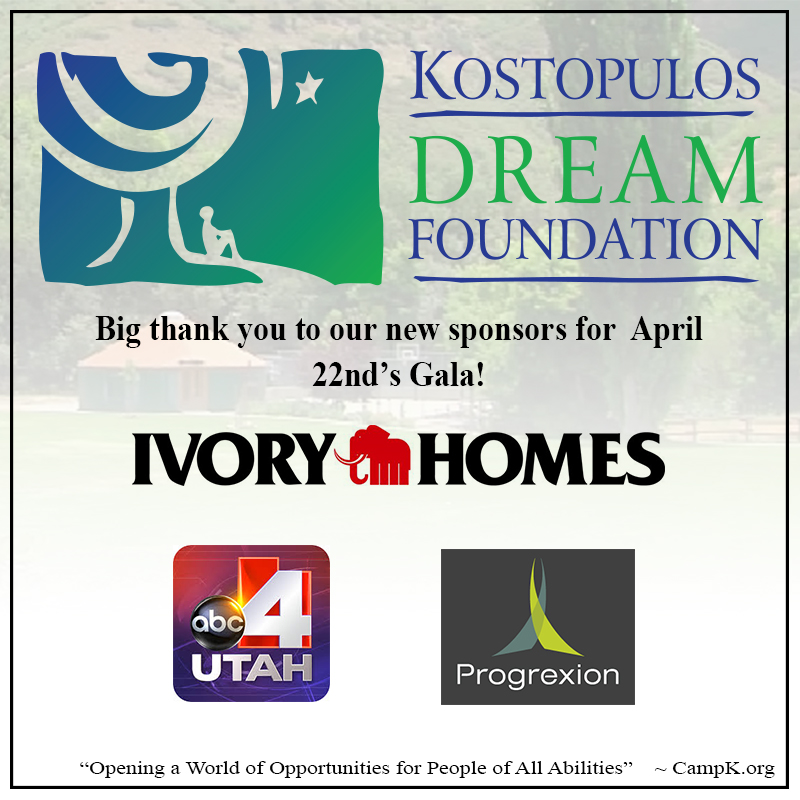
Please, reach out and thank our new sponsors or show support by liking and sharing this. Their support is helping Camp K provide services for amazing people!
Sponsorships are still available for the Gala on April 22nd. Visit www.campk.org/saktc2017 for more information.
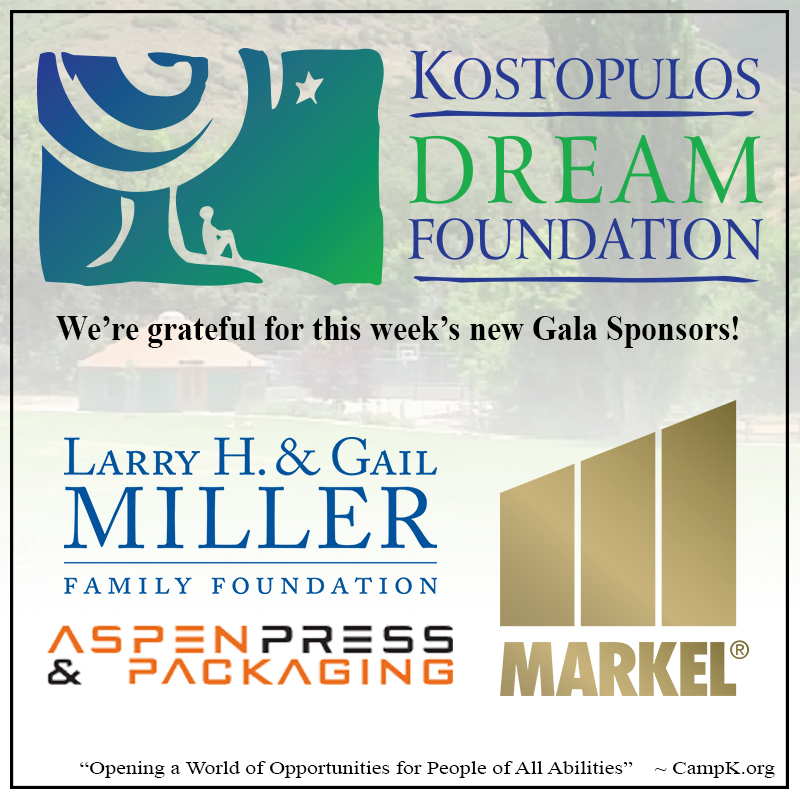
Last night, our students spent a night out on the town, and headed to Denny’s to have breakfast for dinner. They were able to order their own meal from a selection of deliciously flavored pancake options, like salted caramel or banana berry! They demonstrated their social skills by communicating with the waiters at the restaurant, and visiting with their friends! Camp K is grateful to our staff and amazing volunteers, who provided extra help and friendly faces! Thanks to Denny’s for providing great service and delicious food!
Like and share this if you, too, have a smile on your face while thinking of breakfast.
Last Friday, Camp K attended a Jazz Game, where the Utah Jazz pulled off another win against the Brooklyn Nets! Our students always enjoy cheering their team on to victory. This night, our students were surprised with a special treat. They were invited onto the floor during half-time, where they participated in the Jazz Half Time Tunnel! This was an amazing opportunity for them to get onto the basketball court and high-five the players! They also received a Utah Jazz t-shirt, to help them remember the night. Thank you to the Jazz Bear and the Jazz Team for making this event memorable for our students.
